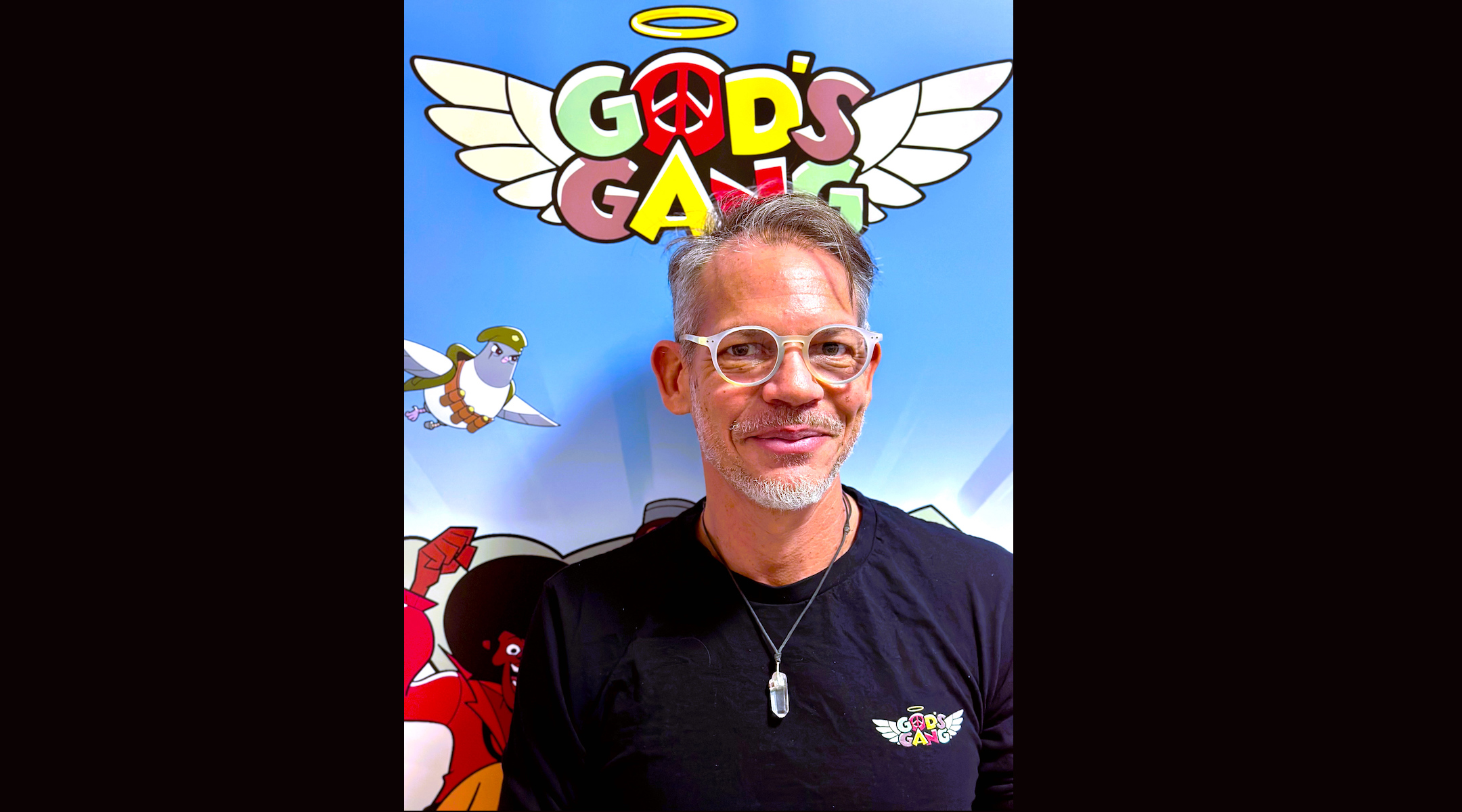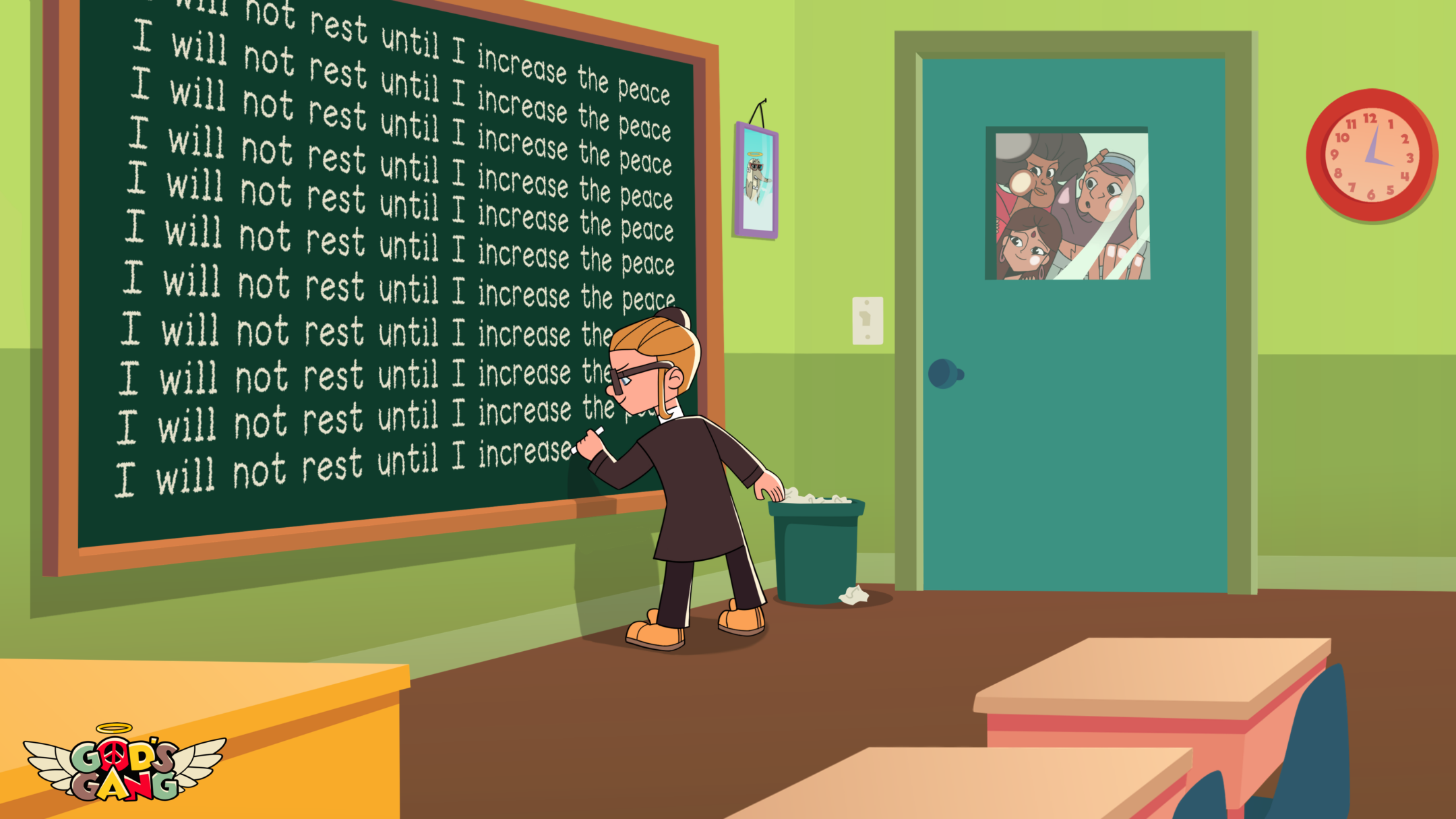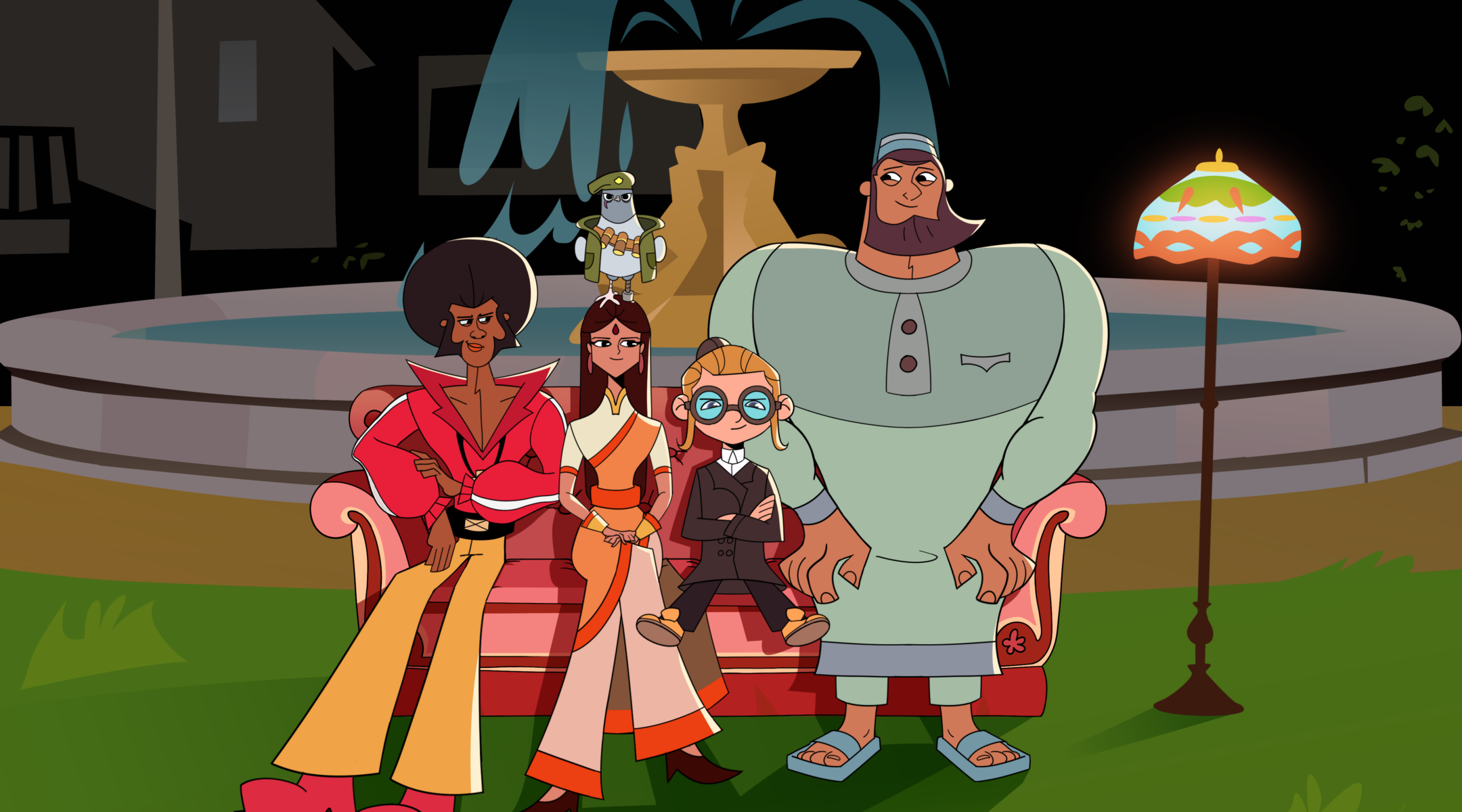(JTA) — Fifteen years ago, Nimrod-Avraham May was a Disney marketing executive with a Haim Saban-sized dream. On a Caribbean cruise with other company executives, he pitched an animated children’s show about a team of superheroes who, like Saban’s hugely popular Power Rangers, joined forces to fight evil. May’s characters would belong to different religions, and their ability to work together would send a positive message to young viewers from different backgrounds.
The show did not get made, and May left Disney to work in tech and venture capital. But he never gave up on his dream.
In mid-October, he released the pilot episode of “God’s Gang” on YouTube. The independently produced cartoon features Jewish, Christian, Muslim and Hindu characters, each with a unique superpower associated with their religion, squaring off against mad scientists and aliens. The gang’s catchphrase — “Thought! Speech! Action!” — comes from Kabbalistic teachings.
The pilot has been viewed 2.6 million times, with many commenters clamoring for more episodes.
“When you put an interfaith group together it creates immediate attention because it’s never been done before,” May said in a video interview this week from his home office in Tel Aviv. “The way that we’re positioning the show, it runs on a spiritual core but it’s overlaid with action, entertainment and fellowship.”
Besides May, the show’s writer Rob Kutner, its director Ehud Landsberg, and many of its producers are Jewish. The team also includes an interfaith council of religious leaders, including an imam, a Christian pastor and a “Hindu specialist,” along with a Tel Aviv rabbi, Shlomo Chayen, and a Kabbalah advisor named Zohar Ezra Melnik. Yet May insisted that “God’s Gang” is not a show about religion. “It’s a show that looks for the shared values and shared connections between all people with faith and without faith,” he said.
May grew up in a secular household in Israel and considered himself an atheist until age 36, when a near-death experience led him to start studying with a rabbi from Aish, the Orthodox educational organization. “He told me, ‘You are going to be a Jewish leader,’” May, 51, recalled. “I have an inner thirst for knowledge, so I went on a journey.”

Nimrod Avraham-May is the Israeli creator of “God’s Gang,” an animated series of interfaith superheroes that he hopes to expand. (Courtesy “God’s Gang”)
In April 2021, May began working on bringing his vision for “God’s Gang” to fruition. He raised money from investors, assembled a production staff and found a Singapore-based studio to do the animation. Kutner, an Emmy Award-winning TV writer and children’s book author, came aboard as head writer.
“It’s nice to be working on something that’s original, valuable for people and personally meaningful,” he told the Jewish Telegraphic Agency.
Kutner, who lives in Los Angeles, described “God’s Gang” as “ambitious” and very different from faith-based children’s shows such as “VeggieTales” and “Davey and Goliath,” both of which aimed to spread Christian ideas and values.
“There’s a history of programming for kids that’s of the more proselytizing quality, but this is not that at all,” he said.
He described May as someone who “radiates this love and positivity that’s a little bit rare in entertainment production.”
The show is being marketed to viewers ages 9 to 19, but Kutner said that’s something of a guess about whom “God’s Gang” will appeal to the most. “We’re using this period to test it out,” he said.
Based on comments left on the show’s YouTube and TikTok accounts, the pilot has resonated with people from a variety of backgrounds. Emma Thorne, a popular British YouTuber and atheist, described it in a review as a “fun” and “visually appealing” way to show children “that it is perfectly OK to have differences, to be members of different faiths, and to still be friends.”
But some Jewish viewers have criticized the creators for showing what they felt was a surprising lack of cultural sensitivity.
“There’s a part where the Muslim character throws a falafel bomb,” Sam Cooper, a Maryland-based pop culture critic, said in an interview. “I assume the goal of the show is to teach tolerance and educate people about other religions, but they don’t seem to be very good at that.” (Kutner said the character, Sumuslim, aspires to be a chef, but in hindsight the decision to have him prepare a big exploding falafel ball was “a little unfortunate.”)
Cooper also lamented that the Jewish character, Ninjew, is short and has big glasses and a nasally voice. “I’ve seen this stereotype in so many shows,” she says in her review. “Jewish guys aren’t allowed to be cool. They’re usually depicted as effeminate, nerdy and weak. And then our boy Ninjew is all that and then some.” (May defended Ninjew, describing him as “a handsome Jew” with non-stereotypical blue eyes and blonde hair.)

A shot from “God’s Gang,” featuring the Jewish superhero Ninjew, echoes a classic shot in “The Simpsons.” (Courtesy “God’s Gang”)
Shekhiynah Larks, a diversity, equity and inclusion consultant in the Bay Area and a fan of animated shows, questioned the decision to make Chriscross, the Christian character, a Black Baptist street preacher who wears an Afro and bell-bottoms.
“Conceptually, I really like the interfaith gang, but all of the characters seem like weird stereotypes,” said Larks, who is Black and Jewish. “The Black character made me think the creators haven’t seen a Black person since the Blaxploitation films.” (Kutner said Brandon Jones, a Baptist pastor who serves on the interfaith council and is Black, loved the character.)
Both May and Kutner stressed that the characters will evolve as the series progresses, and new characters will join them on their adventures. “We’re using familiar anchor points to bring viewers in,” Kutner said. “As we go further in the series, you’ll see more levels to these characters that are unpredictable.”
“He has this intense faith in the project. Sometimes it goes to some odd places because spirituality can get weird and squishy, but we try to rein it in.”
May is currently trying to raise $3 million from investors and through a crowdfunding campaign, with the goal of producing 52 3-minute episodes. He believes his long-gestating show is being made at precisely the right time.
“As the world is getting more polarized, there must be a voice to stop this insanity,” he said. “There’s only one energy we need right now, love, and that’s the essence of this show.”
JTA has documented Jewish history in real-time for over a century. Keep our journalism strong by joining us in supporting independent, award-winning reporting.






